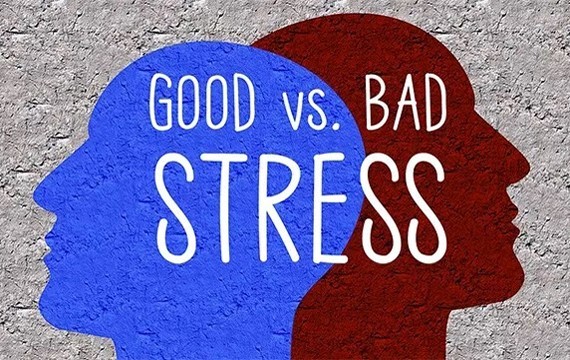Education & Career Trends: May 21, 2023
Curated by the Knowledge Team of ICS Career GPS

- Excerpts are taken from an article published on psychologytoday.com.
People sometimes contemplate if positive experiences could be considered stressful, and the answer is yes. Think of how thrilling it is to watch your favourite sports team compete, how exciting it is to get a new job, or even how enjoyable it is to start a new hobby or relationship. Stress has come to be associated with such negative experiences that people are often surprised to learn that it can be positive too, both being caused by good things and good for you.
Stress can be brought on by engaging in something new, striving to achieve a worthwhile objective, or experiencing a peak experience. Stress can even be caused by anticipating something exciting.
We are alert, involved, and concentrated, so even organising a delightful vacation or event might be somewhat stressful. We feel pressurised by our to-do list, even if it’s for the better, and we react by taking constructive action. This is stress.
Although tension is unpleasant and strains our bodies, this does not imply that tension is always harmful or that it is always present during difficult circumstances. It may also occur with good things.
5 Things to Understand about Good Stress
Here are five key ideas to understand about good stress, and how good things can cause it.
1. Good stress has a technical name
Technically speaking, “good stress” isn’t a new idea or thing. Hans Selye, known as the “grandfather of stress,” was so convinced that such a thing existed and gave it the name “eustress” more than 50 years ago. Eustress is described by Webster as “a positive form of stress having a beneficial effect on health, motivation, performance, and emotional well-being.”
2. The experience of stress is the same‚ whether good or bad
Recognise that tension exists when you are excited. We are tense, on edge, and stimulated by excitement. It’s tangible. A child who receives his favourite item as a birthday surprise will experience intense delight; an athlete who is about to compete will be eager to succeed. Think about how your body feels when you are watching your favourite sports team compete (on the edge of your seat). Even if you’re having fun, it’s likely that your muscles are tensed, your heart rate is somewhat increased, and you’re deeply engaged and focused. This is how you react to something interesting while you’re stressed.
3. Perceiving the situation as positive is the key to keeping stress positive
Understanding that stress is contributing to a desirable result or significant opportunity is what is meant by positive stress. Planning a vacation, exerting significant effort to achieve a worthwhile objective, and adjusting to a new and improved condition in life all include making attempts to get a favourable result. Although there are adjustments to be made and pressure to achieve the required results, the positive aspects of stress can help us stay focused.
4. You are in charge
Rather than what stress truly is, what makes it good or unpleasant depends more on how you perceive it. Selye’s initial definition of stress is “the non-specific response of the body to any demand for change,” and it is inherently neutral. Its purpose is to cause us enough discomfort that we will pay attention and change how we behave to suit the situation. This is stress. Whether it’s beneficial or detrimental depends on how we see it, and this is always within our power to change.
5. Practice makes perfect
The more successful experiences you have with stress, according to research, the more likely you are to perceive and handle stress successfully. We become more adept at using stress to direct and energise our efforts in the direction of a successful end as we practise.
Stress can be brought on by the anticipation of a trip, reaching a significant milestone, taking an exam, visiting a loved one, or even the wait to return home after an exhausting day. Excitement and anticipation are stressful, and the intensity of the emotion can be rather unsettling. However, by approaching stress positively and concentrating on its benefits, you may keep stress in a good light.
The more positively we view stress, the more likely we can use it as the powerful tool it is to forge growth and positive change.
…
Have you checked out yesterday’s blog yet?
Study in Singapore: Everything You Need to Know
(Disclaimer: The opinions expressed in the article mentioned above are those of the author(s). They do not purport to reflect the opinions or views of ICS Career GPS or its staff.)
Like this post? For more such helpful articles, click on the button below and subscribe FREE to our blog.




One Reply to “Can Stress Be Positive?”